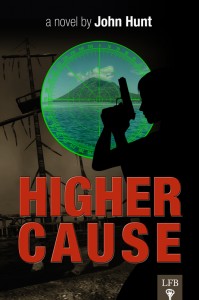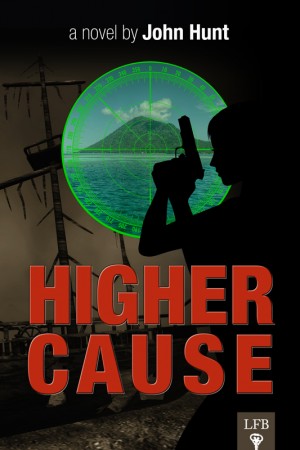

Logic is never kind to a story about time travel. It seems that no matter what idea or aspect of so-called fourth dimensional travel a storyteller wishes to pursue, something does not work right — contradictions abound. The biggest plot holes in the history of fiction are to be found therein. For my money, this is the first and best reason to suppose that time travel is not possible. Reality is nothing if not possible and plausible — at least from the perspective of one in possession of the relevant facts — and if a story cannot be made to work right when time travel is involved, reality probably cannot either.
There is, however, a lot of potential in such tales. If a viewer will but suspend his disbelief and allow an author or filmmaker to explore one possibility while forgetting its necessary and contradictory corollaries, then some interesting possibilities may be realized. Rian Johnson has done a first-rate job of spinning a time-traveling yarn with the new movie Looper, if the audience will afford it such consideration.
The year is 2044, and time travel, as we are told by the narrator and protagonist (played by Joseph Gordon-Levitt), is not yet invented. Thirty years in the future, it is/will be (it occurs to me that we need another tense or two in the English language when we discuss these things). It is illegal, though, and only mobsters make use of it, to send back their targets to be eliminated and their bodies disposed of. The men who do the eliminating and disposing are called loopers, and they earn that appellation when they close their own loop by, at the end of their contract, killing their 30-years-older selves.
Our protagonist, called simply Joe, is a drug abusing, well-dressed looper with a manner perhaps a bit too refined, and a face perhaps too smooth and handsome, for someone in his station. Leonardo DiCaprio, in The Departed, managed to overcome his golden beauty and give a convincing portrayal of a hoodlum. I would have preferred something rougher like that in Looper. Gordon-Levitt has all the makings of a leading man, but I thought the role he portrayed in this film was not quite the right one.
[continue reading…]
Help Promote Prometheus Unbound by Sharing this Post


The Hollywood Movie Factory has turned out another flick, helping to satiate the demand for competent but uninspired action vehicles conveniently forgettable enough not to take up valuable cerebral RAM for the long-term. This one is called Dredd 3D and is based on the same source material that spawned the Stallone production some years ago. I hardly remember the previous version, and I fully expect to have difficulties recalling the present one when, in a decade or two, they remake it. More interesting than the movie, however, are all the libertarian points it makes without any indication that it means to.
In the future, the United States has become an irradiated wasteland, save for a megacity that stretches from old Boston to old DC. A place of squalor and, one suspects based on general living conditions, a robust welfare state, 800 million inhabitants huddle together inside its protective walls, trying to eke out an existence while spawning the occasional mutant.
There are gigantic living centers hundreds of stories high where like classes of people are housed. These massive structures have all the hallmarks of government housing, from a disinterested janitorial staff to poorly maintained and infrequently cleaned premises to homeless squatters claiming filthy nooks and crannies. As one would expect, drug lords dominate in these neglected mini-cities.
Judge Dredd, a member of the police/military class, has the legal privilege to apprehend, try, and punish on his own authority. He takes a student out with him for a day, a young woman who cannot manage a passing grade at the academy but whose mutant psychic powers make her highly desirable for the force. In answering a police call, they enter Peach Trees, the name of one of the gigantic living complexes, and arrest a prominent member of a powerful drug gang. The local drug lord, fearing what information her subordinate will give away when he is interrogated, locks down the building and tries to eliminate the judges.
[continue reading…]
Help Promote Prometheus Unbound by Sharing this Post

This review is part of a series covering each installment of the serialized novel Higher Cause, written by John Hunt and published by Laissez Faire Books. To catch up, start with the announcement, the book’s link-rich table of contents, and the first review.

We have finished the first half of Higher Cause with this, the 11th installment. We get three chapters this time, each dealing with different places and different characters. The action is well under way, so any break we get from here on out will be, one suspects, something of a cliff hanger.
The first chapter picks up where we left off last time, with Jeff and Petur dealing with the attack on the OTEC. As Jeff feared, there was more to come. Indeed, what transpires is perhaps the most harrowing part of the entire ordeal with the saboteurs and assassins. By the time it is over, it seems like a draw between the two sides, and we know that they will butt heads again, most likely multiple times, after they have licked their respective wounds.
The second chapter is perhaps the best thing John Hunt has yet given us. We return to Mexico, to the former drug family now involved in political revolution. We might discuss its placement in the book, because it is largely an establishing chapter and this is the very middle of the novel, but what it gives us is engrossing.
We have a father and a son. The other son is now deceased, as we saw earlier, and the living son has schemes. The dynamic between the two is good, and then we are treated to a scene of the son pursuing a lust-interest who works in the father’s home but who resists the son’s advances. This also adds flavor to the mix, tells us a little more about the son as we discover his motives and his attitude about the whole thing. As if this were not enough, a final twist is added at the end, and that is the best part of all.
[continue reading…]
Help Promote Prometheus Unbound by Sharing this Post

This review is part of a series covering each installment of the serialized novel Higher Cause, written by John Hunt and published by Laissez Faire Books. To catch up, start with the announcement, the book’s link-rich table of contents, and the first review.

As we near the midway point of the 22 installments of Higher Cause, we get the first major action set piece. The long-awaited OTEC arrives at The Island, and once again a deadly sabotage is attempted. By the end of the second of two chapters, it is clear that there is more soon to come. We are left with perhaps the biggest cliffhanger yet.
This was an excellent time to pull a scene like this. A lot of different pieces have been put into place and the main storyline is underway. It raises the stakes and gives us a long chapter from multiple viewpoints. If it were a movie, this section would probably feature in the trailer. The key, of course, will be to get a couple more such chapters in and increase the thrills and tension each time.
The pacing was spot on this week. We can feel a lit fuse burning to its end; a sense of foreboding laces the early segments. The picture of what is going to happen comes into sharper and sharper focus, and then the thrills start. It is a strong addition to the story so far.
There continue to be opportunities for improvement. One would be to do a little less explaining. There are times when a line of dialogue is explained when the thrust is obvious from the context and the wording. Other times a character’s actions or reactions are explained when it is not necessary; the reader understands what is going on and why.
[continue reading…]
Help Promote Prometheus Unbound by Sharing this Post

I listen to a number of podcasts on books and writing in the science fiction and fantasy genre. I find them interesting and valuable as a fan, as the editor of Prometheus Unbound, and as an aspiring author myself. I think you will as well, so I’ve created a curated list of my favorites and what I’m listening to now. Do you listen to any of these? Are there any I haven’t listed that you would recommend? Let us know in the comments.
General SF&F Book Podcasts
These are mostly general science fiction and fantasy podcasts about books, although movies and tv shows do come up on some of them as well. If you’re interested in the craft and business of writing, it would be worthwhile to subscribe to these not only to keep up with the state of the field but also because they often feature authors, editors, publishers, and agents as interviewees or guests.
The SF Signal Podcast — The Hugo-nominated podcast of the indispensable Hugo-winning SF Signal website. Hosted by Patrick Hester. The schedule is one interview episode and one discussion episode per week. The podcast features a wide range of interviewees, guests, and panelists, including a core group of regulars, from the science fiction, fantasy, and horror community. I haven’t listened to the new, separate Crossing the Gulf podcast hosted by Karen Burnham (a NASA engineer) and Karen Lord yet.
Adventures in Scifi Publishing — Hosted by Shaun Farrell, Moses Siregar (The Black God’s War), and Brent Bowen. A long-running podcast featuring discussion and interviews with the biggest and hottest names in the genre community as well as newer authors. The experienced hosts are self-published or aspiring authors themselves. Update: Founder Shaun Farrell has had to step down from hosting AISFP, but he relinquished the reins to new host Tim Ward so the show will go on.
The Coode Street Podcast — A rather informal and, as they say, rambly conversation between editor Jonathan Strahan (Life on Mars) and academic and reviewer Gary K. Wolfe (Evaporating Genres). There is the occasional guest, but mostly it’s just the two hosts. You can learn a lot about the current state of the genre, and especially its rich history, from these widely read veterans.
[continue reading…]
Help Promote Prometheus Unbound by Sharing this Post


We’ve got another book giveaway for you.
I’m pleased to announce that we’re working with libertarian science fiction author J. Neil Schulman to give away copies of his classic dystopian novel Alongside Night.
Written over three decades ago, this Prometheus Hall of Fame Award–winning novel is a thriller set in an America facing economic collapse, a growing totalitarian police-surveillance state, and agorist counter-economic resistance. And now it is being adapted into a film starring Kevin Sorbo as Dr. Martin Vreeland.
We’ll be giving away the ebook in epub format for the rest of September, until 12:00am EST on October 1, 2012.
One lucky winner will also receive a signed paperback copy of Alongside Night.
For more information, click on the link below:
[continue reading…]
Help Promote Prometheus Unbound by Sharing this Post

This review is part of a series covering each installment of the serialized novel Higher Cause, written by John Hunt and published by Laissez Faire Books. To catch up, start with the announcement, the book’s link-rich table of contents, and the first review.

This week’s installment has good movement to it. We get three chapters, all of which follow a thread of plot, but from three different perspectives. There are a couple of moments that tantalize us, and we are left with the promise of trouble to come. A good continuation to the story, leaving the reader eager for next Wednesday.
The first chapter is told from Jeff’s perspective. He gets the news that he is cleared to work for The Island, and for Petur specifically. Given Jeff’s background and the forces arrayed against this tropical Galt’s Gulch, there is all kinds of potential there.
Sophia finally lets Jeff in on the details of her work, which is interesting, but best of all, Jeff catches a glimpse of someone we have probably seen before. Someone Petur has seen before, but who has never been identified. A woman of mystery. Further developments await in the following chapters.
Sophia is the point-of-view chapter in the second chapter, and she meets an attractive woman who, we suppose, is the one who has turned up, briefly, before. At this point it is difficult to say whether she is trustworthy or not. She wants to work on The Island, but does not want to get her job the easy way, which would be a guarantee for her. Her approach is curious, her reasons unclear, and it is far from certain whether she is trustworthy or not. My caution alarm is still going off.
[continue reading…]
Help Promote Prometheus Unbound by Sharing this Post

















